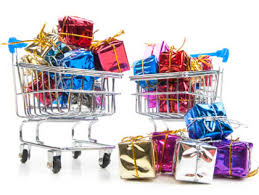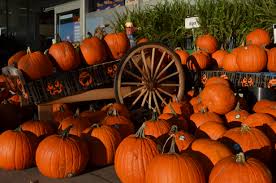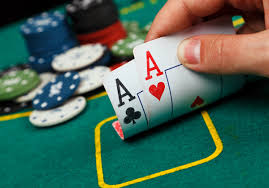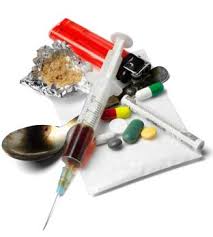Rehab Articles

shopping addiction, holiday shopping
The usual holiday shopping in preparation for the Christmas season can be especially difficult if you have a shopping addiction. What is a chore for many can quickly become a nightmare if you are in recovery for compulsive shopping, because your addiction can be triggered. Christmas is a time for giving gifts though, so shopping for gifts and essentials needed for the holidays must be done. There are some things that you can do so that your recovery continues and you do not find yourself in the same situation you were previously in due to excessive shopping. One way to deal with a shopping addiction and the need to do holiday shopping is to make a very specific list, and then stick to it once you reach the store. This can help you avoid compulsive purchases that you really do not need and may not be able to afford.
If you have a shopping addiction then set a budget for your holiday shopping, and get in touch with someone in your support network when you are feeling weak. This can help you avoid going overboard. If you think that the temptation may just be too much for you right now then another option is to hire a personal shopper if you can afford it. There are companies and professionals who charge very reasonable rates in order to shop for you, and if you have a serious shopping addiction this method may be less expensive than if you visit the stores yourself.
Rehab Articles

Halloween without alcohol, substance abuse
1. Enjoy Halloween without alcohol by throwing your own party and making it clear on the invitation that this is an alcohol free event. Look online and find some spooky cocktails that do not include any alcohol and then serve these to your guests instead. Most people will not even miss the booze and your party will be a big success while you and your guests stay sober.
2. Volunteer in your community. You are more likely to engage in drinking and other forms of substance abuse if you are at home alone on this holiday. Look on the Internet for volunteer opportunities in your town or city, and go help others enjoy this time of year while you get out of the house and stay away from alcohol.
3. If you are looking for fun ways to spend Halloween without alcohol then reach out to some of the recovery groups in your area to find out what parties and other events they will be holding. In most areas AA, NA, and other recovery groups will hold celebrations which are designated substance free. This allows everyone to enjoy a good time without drinking or using drugs.
4. Avoid any event or celebration where you know drinking or other types of substance abuse will be going on. One of the most common relapse triggers is arrogance, thinking that you can be around a substance that you have had a problem with in the past without being affected. Avoid these events completely.
Rehab Articles

secondhand marijuana smoke, drug screen results
A new research study has shown that secondhand marijuana smoke is highly unlikely to cause positive drug screen results, although in some cases this may be an issue. If an individual is exposed to large amounts of secondhand marijuana in a room that has no ventilation at all the I is possible for the individual to have positive drug screen results without actively smoking the drug, but only for 6-24 hours after being exposed. This is very rare according to John Hopkins University researchers who performed the study. The researchers used 6 participants who were experienced at smoking marijuana, and 6 participants who did not use the drug at all. There were 3 sessions, 2 were performed in a sealed room and the third session occurred in a well ventilated room. The non smoking participants were seated in the same room next to the marijuana smokers in each session.
The non smoking participants were tested at least 13 times during the 34 hours following their exposure to secondhand marijuana smoke, and only 1 individual in the study who did not smoke marijuana had positive drug screen results using the standard workplace testing methods. When a more sensitive drug test was used the researchers were able to detect very low THC levels in some participants but the positive results only occurred within 24 hours of exposure to secondhand marijuana smoke. Those who did not smoke and who were in a ventilated room did not come anywhere near the threshold required for a positive drug screen in the workplace.
Rehab Articles

pathological gambling, altered opioid system in the brain
The latest research shows that pathological gambling can result in an altered opioid system in the brain, and there is a link between this activity and the way that the brain of the compulsive gambler responds. UK researchers believe that this may show why compulsive gambling leads to addiction. The study and results were presented at the European College of Neuropsychopharmacology Congress in Berlin. The study involved 29 participants, 15 who were healthy and who did not have a problem with compulsive gambling as well as 14 participants who were already pathological gamblers. PET scans were used to measure the levels of opioid receptors in the brain of the study participants. The results showed that compulsive gambling did not increase the level of opioid receptors in the brain, unlike addiction to heroin and other drugs where there are more opioid receptors with addiction to the substance.
While the pathological gambling study showed an altered opioid system in the brain the changes were not due to an increase in the opioid receptors in the brain tissue. Each study participant was then given a tablet of amphetamine to release endorphins in the brain. The compulsive gamblers released a lower amount of endorphins than the healthy volunteers did. According to Dr. Inge Mick who led the research study “From our work, we can say two things. Firstly, the brains of pathological gamblers respond differently to this stimulation than the brains of healthy volunteers. And secondly, it seems that pathological gamblers just don’t get the same feeling of euphoria as do healthy volunteers. This may go some way to explaining why the gambling becomes an addiction.”
Inge continued by saying “Looking at previous work on other addictions, such as alcoholism, we anticipated that pathological gamblers would have increased opiate receptors, which we did not find, but we did find the expected blunted change in endogenous opioids from an amphetamine challenge. These findings suggest the involvement of the opioid system in pathological gambling and that it may differ from addiction to substances such as alcohol. We hope that in the long run this can help us to develop new approaches to treat pathological gambling.”
Rehab Articles

National Drug Facts Week, substance abuse among teens
Substance abuse among teens in North America is high, and the National Institute on Drug Abuse which is a component of the National Institutes of Health is trying to lower these rates each year with National Drug Facts Week. This year the event will start on January 26, 2015 and end on February 1, 2015. Teens and experts in the scientific community are brought together with the goal of increasing awareness and preventing substance abuse among teens. National Drug Facts Week has community based events, online access to web portals and substance abuse information for teens, and other resources. In 2014 the event sponsored over 1,000 community based events during the week, and reached many thousands of teens. The current rate of substance abuse among teens is unacceptable, and the events are designed to make teens think before they drink or do drugs and to provide the real facts behind substance abuse to dispel common myths.
According to Dr. Nora D. Volkow, who is the Director for the National Institute on Drug Abuse, explained why this week long event is so important and how it can lower substance abuse among teens. “National Drug Facts Week has been growing every year, from 92 events at its inception almost five years ago. This tells us how much teens – who are bombarded daily with misinformation about drugs – want science-based facts about drug use.” Michael Botticelli, the Acting Director of ONDCP, stated “President Obama’s vision is for all of America’s children to grow up in healthy and safe communities. This administration’s drug policy is based on neuroscience, and we are committed to informing young people and health care professionals about the negative consequences drug and alcohol use can have on their futures.”



